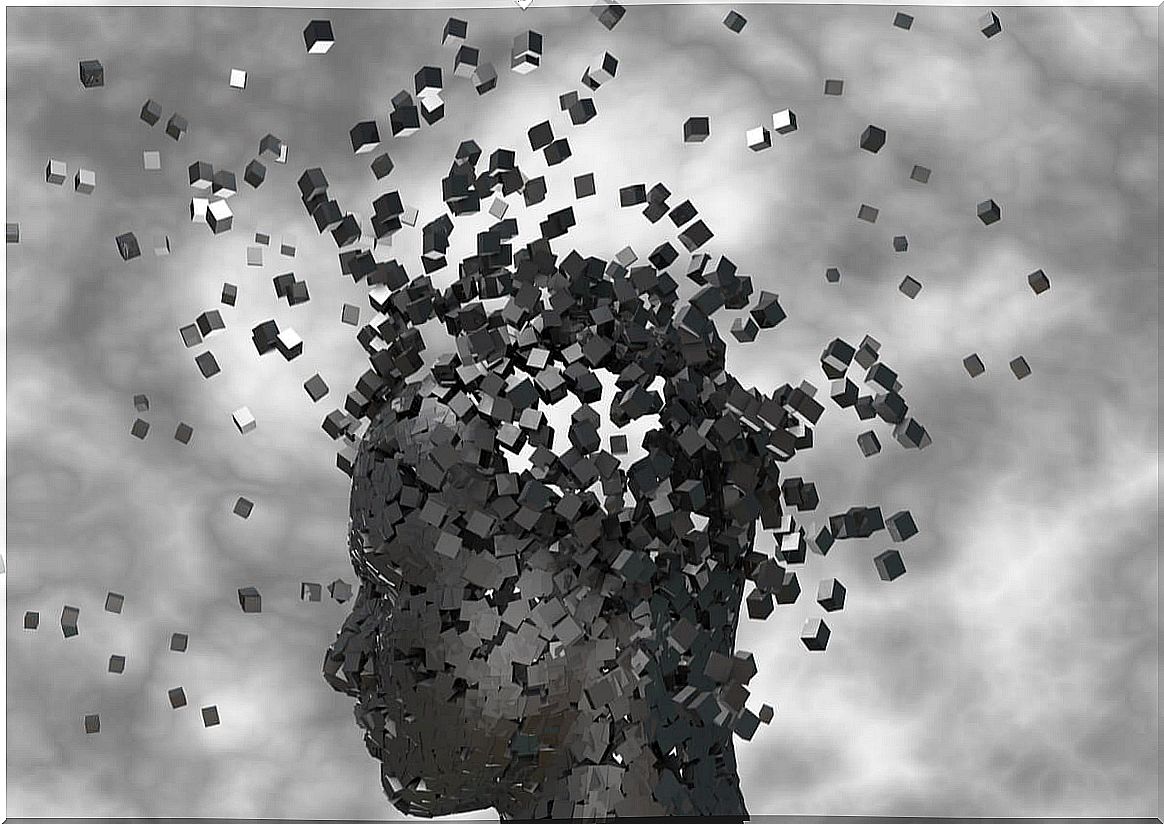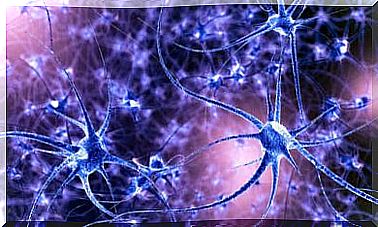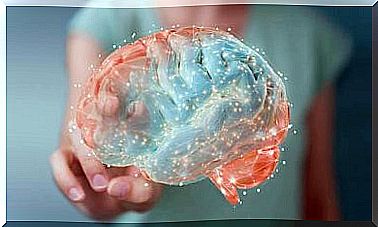What Is Disorganized Thinking?

Disorganized thinking is one of the characteristics of severe mental illness. We could take schizophrenia as an example, in which this type of thinking usually manifests itself in language, constituting an obstacle to communication.
Thus, in these cases, not only disorganized thinking occurs, but also other disorders, such as alterations in language or alterations in executive functions. In this way , the person’s speech can be incoherent, making the clinician’s job difficult in some cases.

Disorganized thinking
As explained by way of introduction, disorganized thinking is present in a wide variety of mental disorders. In schizophrenia, some personality disorders, severe autism, and some mood disturbances, disorganized thinking may be present.
The inability to think clearly and concisely, without a logical structure, is closely associated with the disorganization of ideational elements. Disorganized thinking can manifest itself through symptoms such as delirium, hallucinations, and disorganized behavior.
In this way , disorganized thinking encompasses a wide range of thought alterations, including loose associations, associations between inappropriate elements, use of strange or unusual words, etc. For this reason, among others, cognitive resources are limited.
Is there awareness of disorganized thinking?
Eugen Bleuler argued that the defining trait for the diagnosis of schizophrenia was disorganized thinking. However, it converges with other disorders explained above. In addition, it can be a symptom of mania and, less frequently, in depression. In Tourette syndrome, echolalia may be present, also being one of the manifestations. In addition, it is also present in people who have clear symptoms of delirum.
However, there is a great difference between the level of consciousness of disorganized thinking. While people suffering from schizophrenia or psychosis are not aware of it, the person is usually aware of the alteration in the rest of the pathologies. In this way, when they go to consultation, they often speak of mental confusion.
Symptoms
To observe the symptoms of disorganized thinking, one must take into account the individual’s ability to communicate. Disorganized thinking symptoms can be seen in a wide variety of contexts; especially in times of acute stress. However, the chronic functional disability caused by these symptoms is the defining characteristic to conclude that we are dealing with a thought disorder:
- Praise. Linguistic poverty in speech. May make up one of the negative symptoms in schizophrenia
- Circumstantiality. Inability to answer a question without alluding to unnecessary details
- Lock. it is also characteristic of schizophrenia. The person may abruptly interrupt his speech regardless of whether he is able to return to the point where the topic of conversation has stopped or not.
- Flight of ideas. Considerable jumps from one topic to another. It is very characteristic of bipolar disorder
- Speak distractedly. In the middle of the speech, the person suddenly changes the subject
- Echolalia. Repeating what the interlocutor says over and over
- Sound association. Variant to the flight of ideas although something more serious. Rhyme or alliteration may occur and characteristic of bipolar disorder in the manic phase.
- Tangentiality. Departing from the topic of the speech so as not to return to the topic of interest
- Use of unusual language. It can be invented by the person or use unconventional old words
- Etc.

What happens at the cognitive level?
Disorganized thinking is related to verbal communication. Thought disorders are associated with cognitive processes related to language.
Some studies suggest that disorganized thinking may be due to alterations in information processing. Along these lines, hypotheses have been formulated about a possible dysfunction in executive functions in three mechanisms:
- Processing of contextual information.
- Processing of attention and working memory information.
- Behavior monitoring, including language production.
However, there are a large number of studies apart from theories regarding information processing. Furthermore, even if the hypothesis that a type of neurocognitive deficit was the response to abnormal behavior patterns was confirmed, it would not imply that the neurocognitive deficit was the cause.
In this regard, more research is needed to support the hypotheses derived from the data collected in the research conducted to date.









